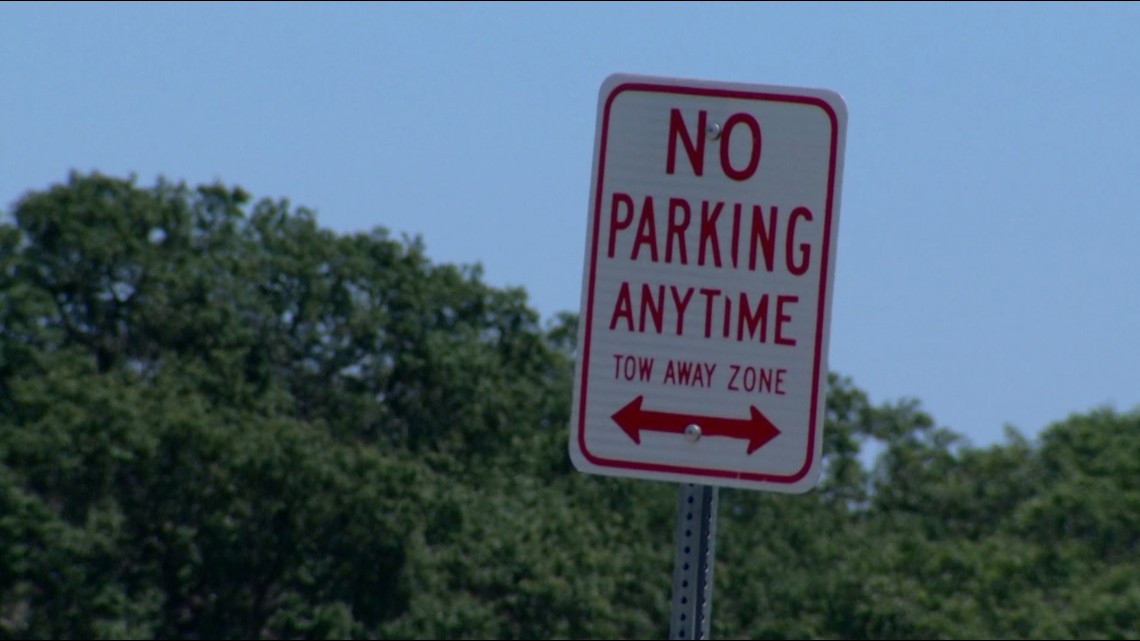
The ordinance goes into effect April 19, kicking off a 60-day warning period before drivers can expect to start getting fined.
SAN ANTONIO — It’s already illegal to park a truck in a San Antonio residential area, but now there’s going to be even more spots where big rigs can’t stop for the night.
For the past five years, the Oakland Heights neighborhood has been fighting for more parking restrictions for semitrucks and tractor-tractors.
John Wood, president of the Oakland Heights Neighborhood Association, claims drivers park their trucks in streets and leave, causing safety concerns.
Beckwith Boulevard is one example he points to where it’s a problem.
“It’s multiple concerns,” he said. “Safety issues for the neighborhood. Safety issue for the Fire Department (Station) 51,” he said. “Of course, cars are swerving around on the street, the street is just not wide enough.”
On Thursday, City Council approved the creation of a new process that would make it easier for residents to get signage restricting parking for trucks.
Under the new ordinance, which goes into effect on April 19, residents would make a report by calling 311. From there, an evaluation would begin to determine if a sign is needed.
Once a sign is placed, parking would be restricted for big rigs 24/7 in that spot. Truckers that don’t abide by the signage would face a $500 fine.
Some spots already identified as problem locations for parked big rigs would be deemed priority areas for signage.
“Thinking about it from an enforcement perspective, you now have more enforcement in the areas that matter the most,” Wood said. “And you still give opportunities for the drivers to park in certain streets.”
In response to the amended ordinance, Texas Trucking Association President and CEO John D. Esparza said that while his organization “understands the need to address unlawful obstructions and dangerous parking, penalizing hardworking truck drivers is not the solution.”
“These drivers play a crucial role in keeping our stores stocked and ensuring timely deliveries,” Esparza went on to say. “Instead of punishing them, we should focus on providing more truck parking options. We sympathize with drivers who can’t find safe overnight parking and urge a collaborative approach going forward to solve this issue.”
From the date the ordinance goes into effect next month, there will be an initial 60-day warning period before drivers can expect to start being fined.
